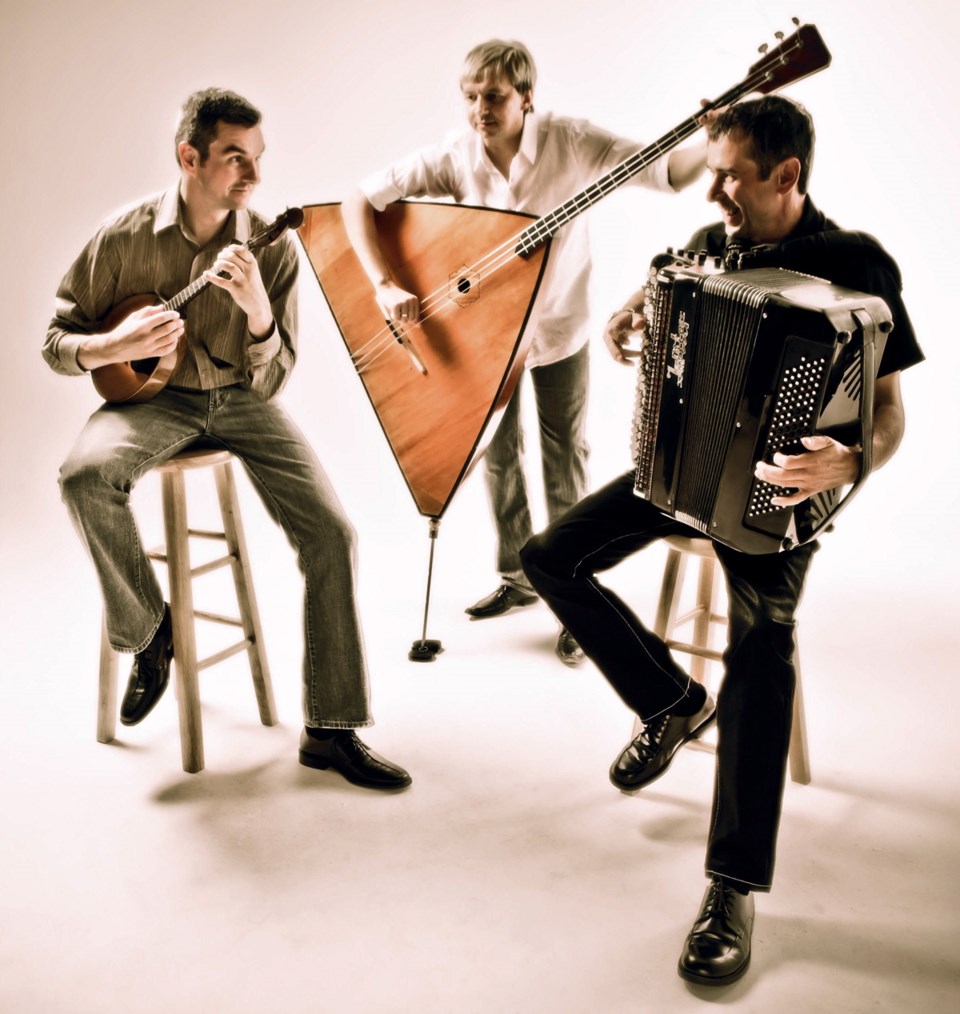IN CONCERT
What: Trio Voronezh
Where: First Metropolitan Church, 932 Balmoral Rd.
When: Saturday, Jan. 25, 7:30 p.m.
Tickets: $20 ($15 for seniors; $10 for students and children) from eventbrite.ca
The members of classical music Trio Voronezh use instruments native to Russia, where its members were born and raised.
The list of gear includes the domra, which is akin to a lute, and the bayan, a chromatic button accordion. The most unusual one, however, is the contrabassbalalaika, a three-stringed guitar with a triangular body more than five feet long. Trio Voronezh could have employed any one of the eight styles of balalaikas — the majority of which are comparable to a regular-sized guitar — but use the contrabass for its rich resonance.
The downside of that decision is something the trio encounters whenever it travels by air. The instrument’s fretted neck is quite thin, and therefore highly breakable, while its shape is disproportionately large and angular. It certainly won’t be stored in an overhead compartment of any plane, especially when it is being transported inside the large road case specifically designed by the group.
“The balalaika itself weighs not that much, 18 pounds or so,” Sergei Teleshev, who plays the bayan in Trio Voronezh, said Tuesday in an interview with the Times Colonist. “But the restriction for airlines is 50 pounds, so we were trying to create a case that would weigh exactly that much with the balalaika [in it].”
Teleshev said the tradesperson hired to build the case was given all the parts — including nuts and washers — and told he “had to make it work.”
The trio’s concert Saturday in Victoria at the First Metropolitan Church offers a reprieve of sorts, as the group is driving instead of flying. The balalaika will travel with the trio in a van from Eugene, Oregon, where Teleshev and bandmates Vladimir Volokhin (who plays the domra) and Valeriy Petrukhin (balalaika) have been based since 1999.
Teleshev said the three childhood friends moved there after discovering the city during their U.S. debut at the Oregon Bach Festival in 1996.
“This is a very, very nice place. We decided to move here first and then see how it goes. But we’ve been stuck here for 20 years already.”
Teleshev, Volokhin, and Petrukhin started performing together at the age of six, and continued through several stages of the Russian music-education system. They did an additional five years of university-level music study at the Voronezh State Academy of Arts, in their hometown of the same name, before turning professional in 1993.
The trio now incorporates an array of music into its sound, from Russian folk music and the Argentinean tango of Astor Piazzolla to the textures of Russian composer Sergei Rachmaninoff, a unique blend that has taken them to stages around the world.
“We don’t really think about why we play this music. We play music that we like, and try to arrange it in a way that other people would like.”



